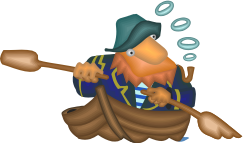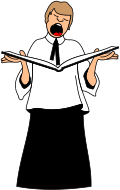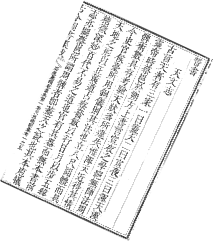


G1-1714-1727-G1-1714-1727-G1-1714-1727-G1-1714-1727-G1-1714-1727-G1-1714-1727-G1

Inx1719 James
Figg becomes the first boxing champion
of
England and keeps the title for
fifteen years. At this time,
no gloves were worn and there
were no rules to follow!

1716 A Swedish
engineer heats an English greenhouse
by a
central heating system based on hot water.

|
The first rowing race of the Thames watermen is held from London
Bridge to Chelsea in 1715. Founded
by the comic actor Thomas Doggett to
mark the accession of George I, he also gave a cash prize and
an orange coat and badge to the winner. Held annually ever
since, it is one of the world's oldest rowing races, but today
no cash prize is given and the Doggett's Coat is now red.
|
In 1718 work begins on the founding of New
Orleans, the home of modern jazz.

In 1719
Liechtenstein becomes a principality as part of the
Holy Roman Empire. It gains its
full independence in 1866.
Wallpaper becomes
fashionable in England around 1720.

ThexThree Choirs Festival is
founded in 1724 and
continues to be held annually
and in rotation at the
cathedrals of Gloucester,
Worcester and Hereford.
ThexEnglish
highwayman Jack Sheppard is eventually
caught in 1724
after making four spectacular
escapes from London prisons. It is said
that 200,000 people witnessed
his hanging at Tyburn in the November.
ThexSpanish Steps, a famous feature in Rome, are
completed in 1725.
They are, in fact, French in
design but are called "Spanish" because the Spanish Embassy happened
to move onto the square at that time!
Inx1726 General George Wade
begins building 250 miles of military
road in the Scottish Highlands, completing the
work in 1737.


|
Coffee is first planted in Brazil in 1725
|

Around this time
the Earl of Sandwich
has sliced meat and bread brought to him at the gaming table so
that his gambling is not interrupted. The humble
"sandwich"
is born and is soon a popular "fast food" in Europe and America.


1726 sees the publication of the Gujin
Tushu Jicheng, a vast Chinese
encyclopaedia containing “The Complete Collection of Illustrations
and Writings from the Earliest to Current Times”. Containing some
800,000 pages (one here illustrated!) it covers a large number of
topics, including astronomy, geography, history, literature and
politics. Compiled over many years, it was mainly the work of two
outstanding scholars, Chen Menglei and,
later,
Jiang Tingxi. About sixty copies were made.


















